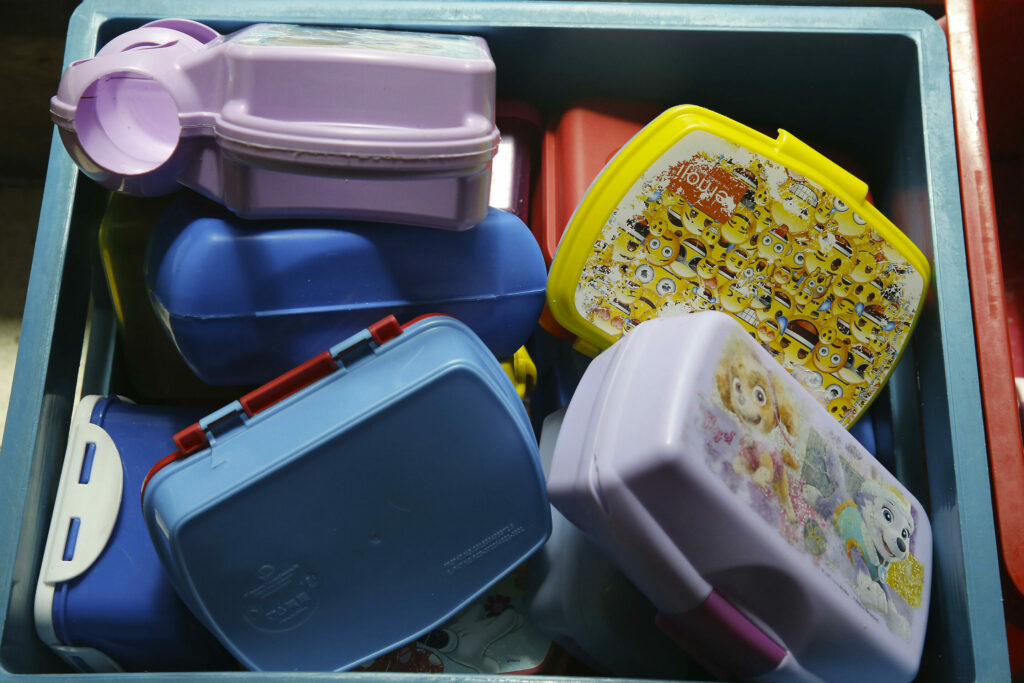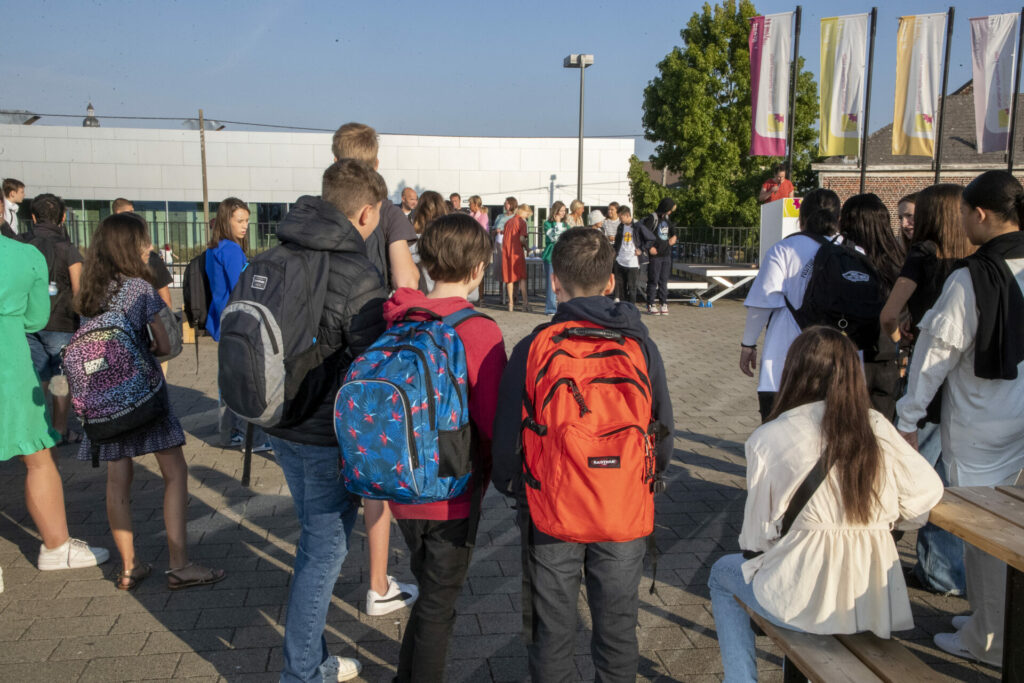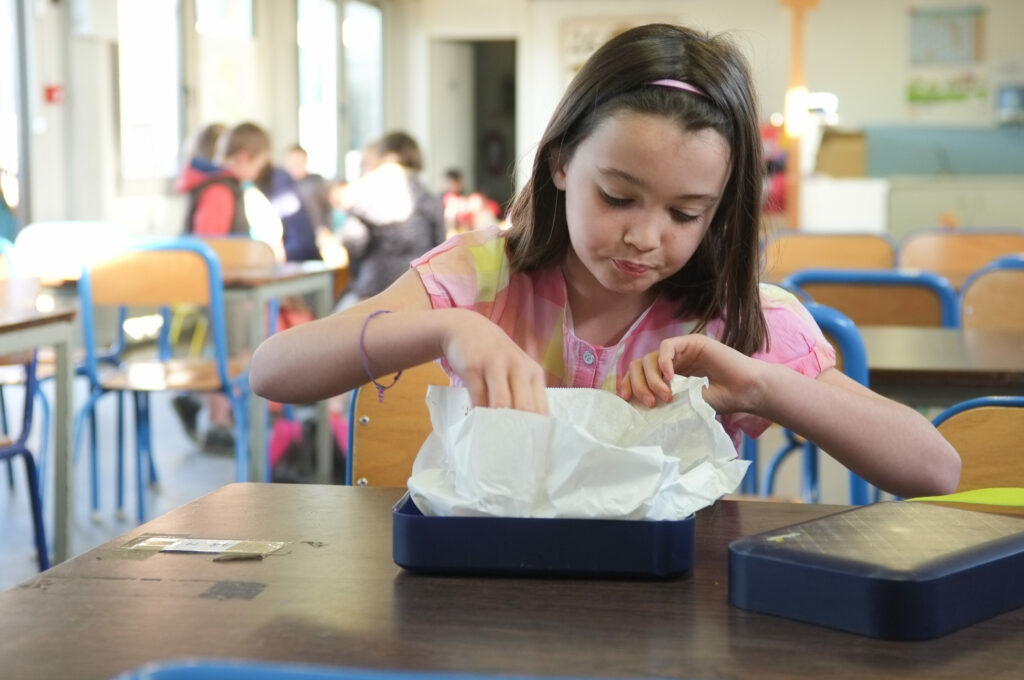While very few primary school pupils (aged 6 to 12) have empty lunch boxes in Flanders, their meals are often unhealthy and of poor environmental quality, research by Ghent University and the Flemish Institute Healthy Living shows.
Researchers carried out a two-part study which assessed the contents of lunch boxes of 1,051 pupils from a representative sample of 25 Flemish primary schools, using an adapted measurement tool. Food was measured using the nutrition triangle of the Flemish Institute for Healthy Living, which evaluates the health and environmental aspects of food.
"The scientific research finally gives us accurate data on what is in the lunch boxes. Whilst there are thankfully very few empty lunch boxes among primary school children, there are other problems," said Flemish Welfare Minister Hilde Crevits. She said that efforts are clearly needed to improve the quality of lunches, which will require more targeted measures.
Hiding food insecurity
9% of children surveyed told researchers that they had frequently experienced food insecurity in the past 12 months – meaning they had insufficient access to food both at school and at home. The researchers found three completely empty bread boxes.
This figure aligns with levels of childhood deprivation (not being able to afford key elements of a normal standard of living). In Flanders one in ten children were materially deprived in 2021.
Children were asked about their diets in an anonymous questionnaire. For instance: 'Do you sometimes eat (a bit of) a friend's lunch box?' or ' In the past 12 months, did you feel tired or weak because your family did not have enough to eat?'.

Credit: Belga/Nicolas Maeterlinck
Some children experiencing food insecurity indicated that they are regularly supplemented by friends and/or the school. Children who experienced food insecurity often don't bring a snack and did not take breakfast on the day their lunchbox was examined.
"This study shows that parents in poverty are doing everything they can to ensure their children's lunchboxes are filled as well as possible, often at their own expense," said Flemish Minister for Poverty Reduction Benjamin Dalle. He welcomed a reduction in children going completely hungry but said that too many still do.
"Local alliance networks against child poverty, or the guide on nutrition at school that we developed with Rikolto, are the right way to support schools and organisations," Dalle added.
Healthy and environmentally responsible
The researchers also evaluated the quality of lunches and whether they were healthy and environmentally responsible. Just a third (35%) of lunch boxes were found to be healthy and environmentally responsible, according to the nutrition triangle.
The majority of lunches assessed contained unhealthy and were not environmentally responsible, with limited fruit and vegetables. The socio-economic background of the pupils had a lesser impact on the composition of the lunch box, with children from more affluent families only slightly more healthy on average.

Credit: Belga / Nicolas Maeterlinck
The study highlights a dual problem: whilst 9% of children experience food insecurity, many lunch boxes were "significantly unhealthy and non-environmentally responsible," said Professor of Health Promoting Consumer Research Wendy Van Lippevelde (UGent).
Non-profit organisation Gezond Leven (Healthy Living) led an additional part of the study to determine how to improve healthy eating at school by identifying the main obstacles.
Free meals?
The need for better meals is especially clear in schools with many pupils in socially vulnerable positions. In these cases, parents rarely ask for free school meals, as they would prefer to be enabled to pay for school meals themselves. This calls for a more structural approach to poverty (such as income support through the growth package, commitment to employment, affordable housing ...).
Parents who were questioned in surveys suggested affordable school meals of between €1 and €3 for a hot meal. Researchers found that on average hot school meals cost €4. But many schools are aware of the financial challenges faced by families and are already making efforts to provide meals.
Related News
- Brussels primary school pupils to get free soup every day
- Child poverty in Flanders more than doubles in 20 years
- Flanders to spend €725,000 to tackle school poverty in Brussels
Each school requires an adapted approach: whilst one might benefit more from help preparing a varied menu that is enjoyed by all, another will benefit more from actions to help parents provide a healthy lunch or supplement those brought in by pupils.
There is also a need for a well-considered school policy on food in schools, with many schools looking for guidance and support – both to see what actions are feasible, how this fits within a broader poverty policy at school, and what actions they can set up structurally.
Interviews carried out in the study showed that whilst free meals for all could of course ensure that everyone has access to healthy meals, this would present a major financial and infrastructural challenge to make happen.

